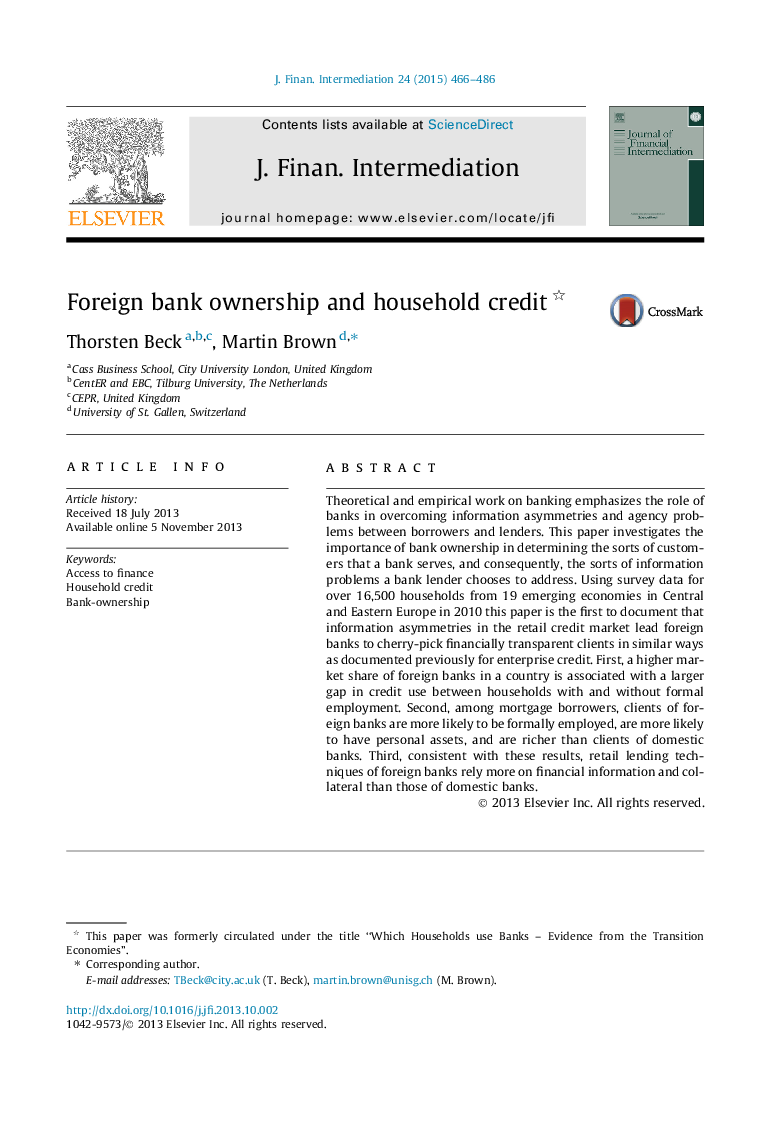| Article ID | Journal | Published Year | Pages | File Type |
|---|---|---|---|---|
| 960659 | Journal of Financial Intermediation | 2015 | 21 Pages |
Theoretical and empirical work on banking emphasizes the role of banks in overcoming information asymmetries and agency problems between borrowers and lenders. This paper investigates the importance of bank ownership in determining the sorts of customers that a bank serves, and consequently, the sorts of information problems a bank lender chooses to address. Using survey data for over 16,500 households from 19 emerging economies in Central and Eastern Europe in 2010 this paper is the first to document that information asymmetries in the retail credit market lead foreign banks to cherry-pick financially transparent clients in similar ways as documented previously for enterprise credit. First, a higher market share of foreign banks in a country is associated with a larger gap in credit use between households with and without formal employment. Second, among mortgage borrowers, clients of foreign banks are more likely to be formally employed, are more likely to have personal assets, and are richer than clients of domestic banks. Third, consistent with these results, retail lending techniques of foreign banks rely more on financial information and collateral than those of domestic banks.
